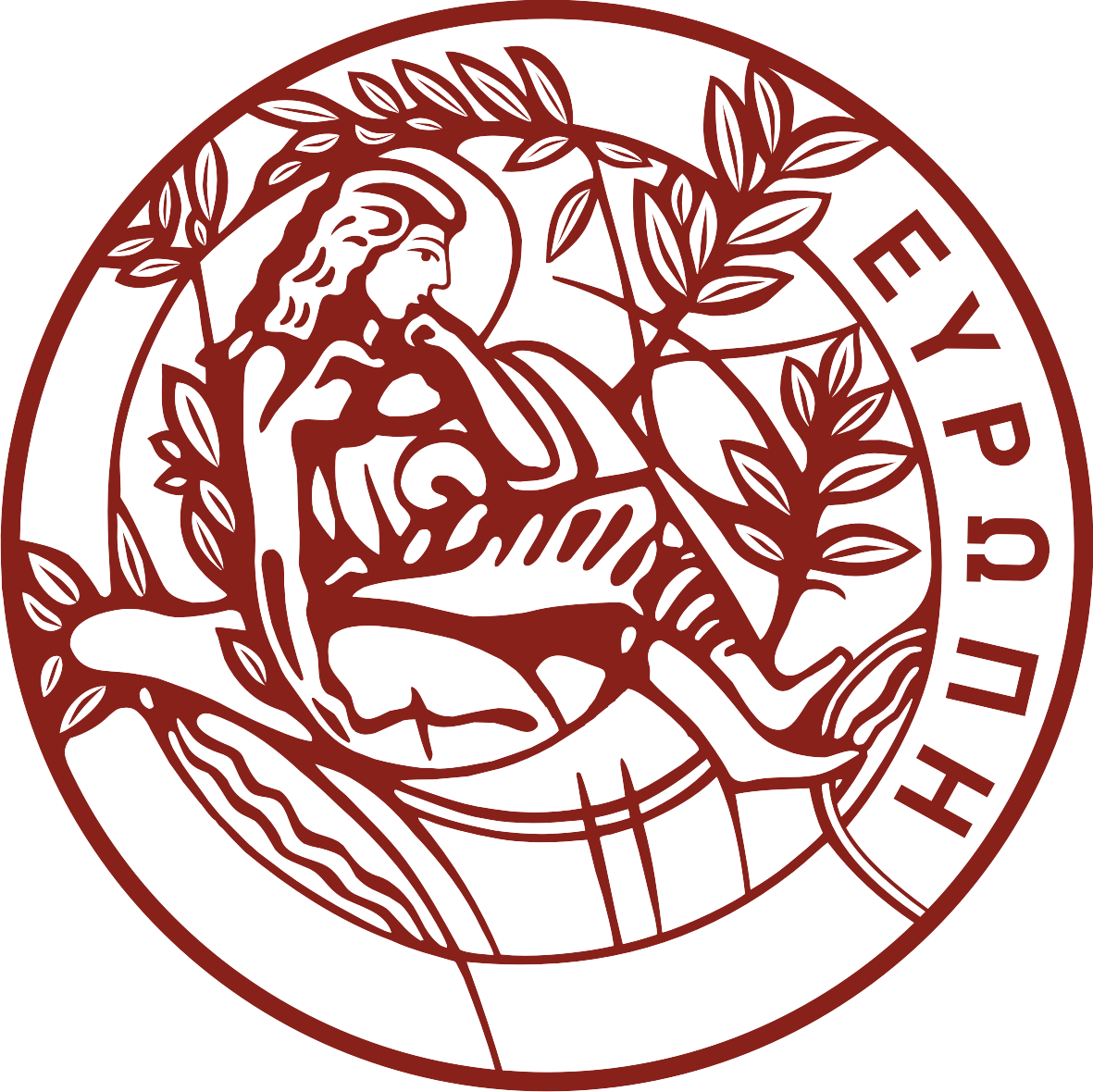You can download the latex template for PhD dissertation (zip) from here.
The Doctoral Studies Program of the Department of Computer Science awards the Doctoral Degree (PhD), according to the provisions of Law 4957/2022 (Government Gazette 141/T.A'/21-7-2012).The program aims to create scientists-researchers capable of contributing to the promotion of research, technology and higher education in the field of Computer Science, which includes the following thematic areas:
A. Computing Infrastructures
A1. Computer Architecture and Microelectronics
A2. Computer systems, parallel and high performance computing
A3. Computer security and distributed systems
A4. Computer networks, mobile computing, and telecommunications
B. Theory, Software and Data
B1. Algorithms and systems analysis
B2. Databases, information and knowledge management
B3. Software engineering and programming languages
B4. Artificial intelligence and machine learning
C. Computer Science and Engineering Applications
C1. Signal processing and analysis
C2. Computer vision and robotics
C3. Computr graphics and human-computer interaction
C4. Bioinformatics, medical informatics, and computational neuroscience
Anyone who holds a postgraduate degree awarded by a Higher Educational Institution (HEI) in Greece or abroad or a graduate of an undergraduate degree programme of a HEI in Greece or abroad, the successful completion of which leads to the award of a single and indivisible degree in accordance with article 78 of Law 4957/2022, has the right to apply for registration in the doctoral studies programme.
The right to apply for a doctoral thesis is granted to holders of a Diploma of Postgraduate Studies (MSc) from a higher education institution in Greece or a recognised equivalent degree from a foreign country or a single and unbroken postgraduate degree.
CONDITIONS FOR OBTAINING A DOCTORAL DEGREE
Each candidate must choose a subject area in which to write his/her doctoral thesis. Studies at the Doctoral Studies Program require candidates to successfully complete a number of obligations related to basic knowledge, postgraduate courses, auxiliary research work, auxiliary teaching work, and other activities. The requirements for the award of a PhD are:
- Fulfillment of the core knowledge requirement. Although the DP is generally awarded in Computer Science, the dissertation is written in one of the subject areas of Computer Science, so the fulfilment of the basic knowledge requirement refers to that area.
- Completion of 240 ECTS, as follows:
- Completion with satisfactory performance of at least forty (40) postgraduate credits (ECTS) or sixty (60) ECTS derived from coursework. These may include the ECTS completed for any M.Sc. awarded by the Department in the meantime.
- Completion of 180 ECTS from the completion of a doctoral thesis, as indicated below.
- Success in the General Postgraduate Examination (GME).
- Submission of a Dissertation Proposal.
- Submit a written detailed progress report of their dissertation progress on an annual basis to the three-member advisory committee and give an oral presentation on the progress of the dissertation
- Preparation and writing of the Doctoral Dissertation.
- Closed support of the doctoral thesis.
- Public support of the Doctoral Thesis.
- Submission of signed copies of the Doctoral Thesis.
- Fulfillment of the program's time requirement.
If the candidate fails to meet any of the above requirements, the PhD will not be awarded and the candidate will be removed from the Doctoral Studies Program.
Duration of the Doctoral Dissertation - Progress Report - Rights
The time period for obtaining a doctoral degree may not be less than three (3) full calendar years from the date of appointment of the three-member advisory committee. The maximum duration for the completion of the doctoral thesis is six (6) calendar years. The General Assembly of the Department may exceptionally extend this limit for important reasons, upon request of the doctoral candidate concerned and approval by the tripartite committee and the supervising professor.
Other activities, such as internships in industry or in other universities and research centres, may be interspersed between these semesters, with interruption of studies for a total duration of up to four (4) semesters, subject to the approval of the Assembly.
The last registration may take the form of a special one-month registration that exempts the student from assistantship obligations. Any request to discontinue study for a semester must be submitted at least 30 days prior to the first day of the semester, as determined by the University's academic calendar.
At the end of each academic year, namely from 15 May to 15 June, the doctoral candidate presents orally and submits a detailed written memorandum to the Tripartite Advisory Committee on the progress of his/her doctoral thesis. A copy of the memorandum and a progress report, which includes comments from the supervisor or the three-member committee, is submitted via the Postgraduate Studies Secretariat to the Departmental Assembly, which validates it and enters it in the candidate's individual file.
Doctoral candidates have up to six (6) full academic years from their first registration, all the rights and benefits provided for second cycle students. Up to five (5) years after completion of their doctoral thesis, they retain rights of access, borrowing and use of the electronic services of the university libraries.
The doctoral thesis may be written in English.
Finally, regarding the substantial part of the student's work and the content of the doctoral thesis, the following words of Einstein, Infeld and Wertheimer from 1938 and 1945 hold true as much today as ever...
"The formulation of a problem is often more essential than its solution, which may be merely a matter of mathematical or experimental skill. To raise new questions, new possibilities, to regard old questions from a new angle, requires creative imagination and marks real advances in science."
A. Einstein and L. Infeld,
The Evolution of Physics, 1938.
"The function of thinking is not just solving an actual problem but discovering, envisaging, going into deeper questions. Often, in great discoveries the most important thing is that a certain question is found. Envisaging, putting the productive question is often a more important, often a greater achievement than solution of a set question."
M. Wertheimer,
Productive Thinking, 1945.



 Announcements
|
News
Announcements
|
News

